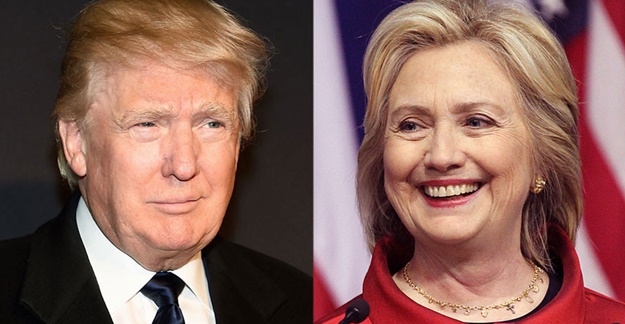Browse This Article
Find out more about where Hillary Clinton and Donald Trump stand on key health care issues, such as rising drug costs and mental health reform.
With Election Day less than 2 months away and the first presidential debate scheduled for later this month, Hillary Clinton and Donald Trump are campaigning at a feverish pace. Although it has not been talked about frequently on the campaign trail during stump speeches, Clinton and Trump tend to have widely different views on various health care issues, from what to do with Obamacare to how to handle rising health care costs.
With this in mind, I decided to dedicate my blog to an examination of where the candidates stand on 3 key issues.
Issue #1: Rising Prescription Drug Costs
Clinton: In the wake of the EpiPen pricing controversy, the former secretary of state has come out with an aggressive plan to curb such increases. She has just proposed to form a dedicated group of representatives from federal health agencies (with input from patient advocates and non-governmental experts) to investigate cases of exorbitant price hikes for drugs that have been on the market for a long time. Enforcement actions — including fines — against a drug company would be taken on drugs that are life-saving or critically needed when:
- The price goes up with no meaningful change or improvement to the product ;
- There is limited or no competition among manufacturers of the treatment; and
- The increase is considered unjustified.
She previously unveiled a plan to curb prescription drug costs by calling on health insurance plans to cap out-of-pocket spending at $250 a month for people with chronic or serious health conditions. Clinton would also spur competition of generic versions of biologic medications — among the most expensive treatments available – by lowering the patent exclusivity. And, she would also allow Americans to purchase drugs from certain other countries that have lower costs.
Trump: While Trump has been largely mum on the EpiPen brouhaha, he has talked about ways to reduce prescription drug prices in general. On his campaign website, Trump calls for removing “barriers to entry into free markets” for pharmaceutical companies that want to provide safe and cheaper products. Although he is scant on the details, he does add that consumers should be allowed to purchase drugs from foreign countries where the prices are far cheaper.
In January, Trump told a crowd that he would save hundreds of billions of dollars per year by having the agency behind Medicare negotiate prices directly with pharmaceutical companies as the program stands as the biggest purchaser of prescription drugs. However, it is unclear if he was being serious or it was just an off-the-cuff remark as he has not provided details on how he would accomplish this.
Issue #2: Obamacare
Clinton: Clinton has been a staunch defender of the health reform law signed by President Obama, but concedes it needs some revisions. One of her proposals would be to give all Americans access to a public-option insurance plan. She would also give the secretary of Health and Human Services the power to modify or reject premium increases for plans offered by private health insurers that are deemed excessive. Clinton will also push state governors extend the law’s Medicaid expansion, as 19 governors have chosen not to do so. Regarding Medicaid, she would allow Americans 55 and older the choice to opt into the program.
Trump: On the first day of his presidency, Trump said, he would ask Congress to repeal Obamacare, which he claims has led to runaway costs, rationing of care, higher insurance premiums and less competition. However, the candidate has some ideas on how he would replace the health care reform law. Trump would allow the sale of health insurance plans across state lines –- currently prohibited –- as a way to promote competition and lower premiums. Individuals would be allowed to deduct their health insurance premium on their tax returns. He would also provide states with Medicaid block grants, as he believes each state is in a better position to manage the Medicaid program for its people. Trump would also encourage use of personal HSAs (health savings accounts) to help pay for medical expenses.
Issue #3: Mental Health Reform
Clinton: A cornerstone of Clinton’s mental health plan is to make sure mental health is treated in the same way as other medical ailments. To accomplish this, she will promote early diagnosis and treatment of mental illnesses, as well as set up a national initiative for suicide prevention. Clinton also calls for greater integration of the nation’s medical and behavioral health systems, and enhanced community-based treatment. Another part of her plan is to provide resources to better train police officers on how to deal with situations that involve people with mental illness.
Trump: Trump has not talked extensively about plans to improve mental health. The issue is mentioned in several policy platform areas on his website. For example, under Second Amendment rights, he says that gun-related mass murders over the last few years had the same thing in common: red flags that were ignored about the perpetrators. He does call for an expansion of treatment programs for people with mental illness that are not violent. In a section on reforms for veterans, Trump calls for greater funding to treat post-traumatic stress disorder (PTSD) and traumatic brain injury and to support suicide prevention services.







